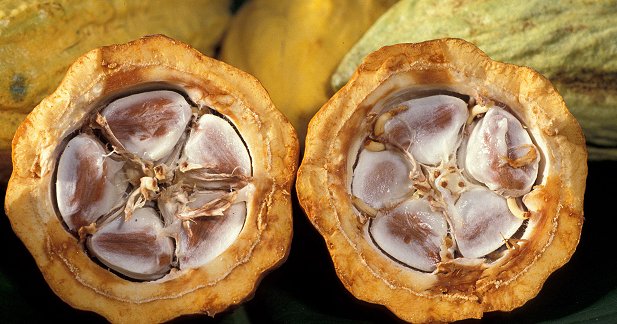
Q&A: Definition of Raw Chocolate?
March 30, 2015
Here's a question I recently received from a reader, "The marketing trend in Australia is RAW chocolate. Does CUO have a definition for RAW Chocolate?"
Answer
Thanks for asking a very good question! As far as I know, there is not a "legal" definition of "raw" in the chocolate industry, nor a standard of identity in order to legally label a chocolate as raw. Thus, the makers of Raw Chocolate/Cocoa are making things up as they go, and this is completely unregulated.
For some Raw Chocolate makers, it means the cocoa beans are unroasted. To others, it means the beans are processed at low temperatures to preserve the highest level of antioxidant power possible while trying to develop some chocolate flavor.
To answer your question, no, CUO doesn’t have a definition of raw chocolate, but as one of CUO’s instructors I certainly have an opinion if you want it!
To me, raw means you pick a cocoa pod off the tree and break it open (like the photo above). Then you scoop out the beans and pop them into your mouth. That's raw!
And that tastes nothing like chocolate, nor could you take beans in this state and make chocolate. You’ll also break a tooth.
What I’m trying to say is that I would like to see the word "raw" eliminated, and use more honest language to describe things. Use terminology like unroasted or lightly-processed chocolate.
I think "raw" gives consumers a false impression of what they are eating. Today’s raw chocolate is not the same as eating a fresh picked apple off the tree or a carrot pulled from the garden.
I’m also concerned that no-roast and low-temp processing puts the safety and integrity of the chocolate at risk. Heat kills bacteria, and roasting develops flavor.
Normally, the more you process and manipulate food, the lower the nutritious value; but chocolate is an exception to the rule. It retains a very high percentage of antioxidants and polyphenols even after it is made in a traditional manner.
- BarkThins Dark Chocolate Coconut with Almonds - May 22, 2020
- Endangered Species Cacao Nibs + Dark Chocolate Review - May 15, 2020
- Mr. Dot Bar Review - May 7, 2020



I’m glad you raised this question, as I was asked the same thing at a chocolate class I gave on the weekend. And I gave an answer similar to what you’ve posted here. What temp do you consider to be “low-temp processing?”